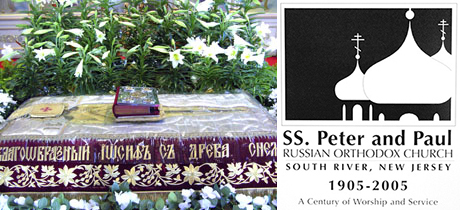 |
April 29, 2005 - Great and Holy Friday - the most solemn day on the Orthodox Christian calendar - commemorates the crucifixion of Jesus Christ on the Cross. It is a day of the strictest fast. No Liturgy is celebrated on this day as the Liturgy is a celebratory service commemorating Christ's Resurrection. Below are scenes from the afternoon service in our Church - Vespers of the Entombment with the Placing of the Winding Sheet on the Tomb - accompanied by the Epistle and Gospel readings for the day.
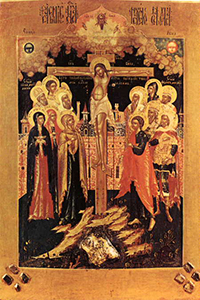 |
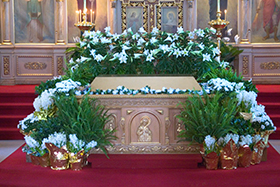 |
 |
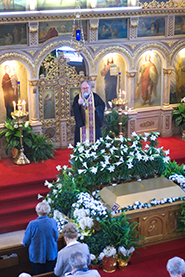 |
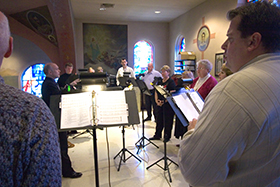 |
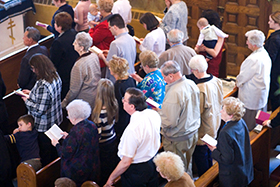 |
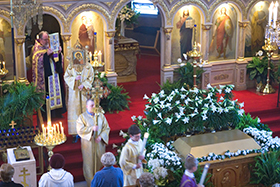 |
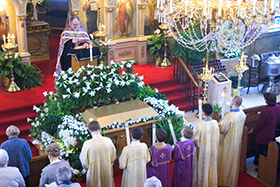 |
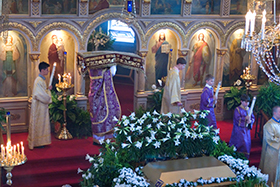 |
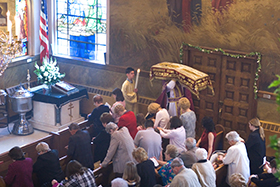 |
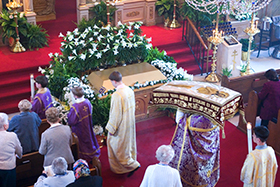 |
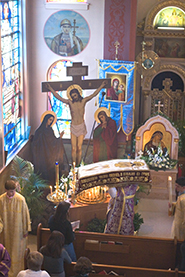 |
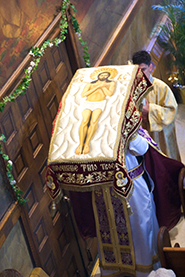 |
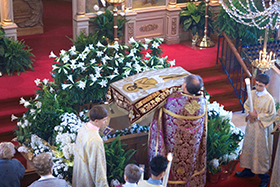 |
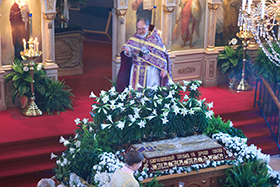 |
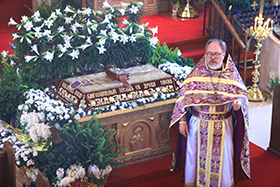 |
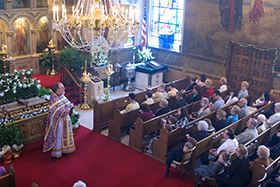 |
 |
 |
 |
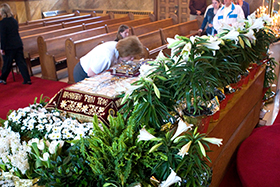 |
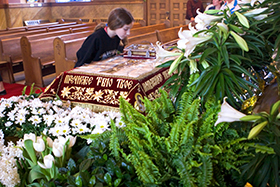 |
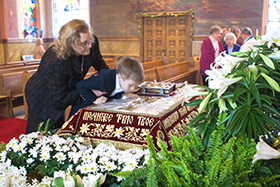 |
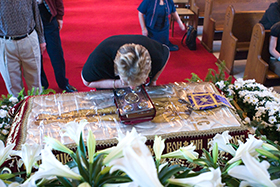 |
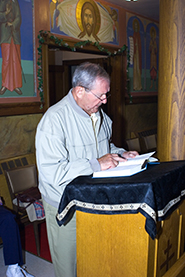 |